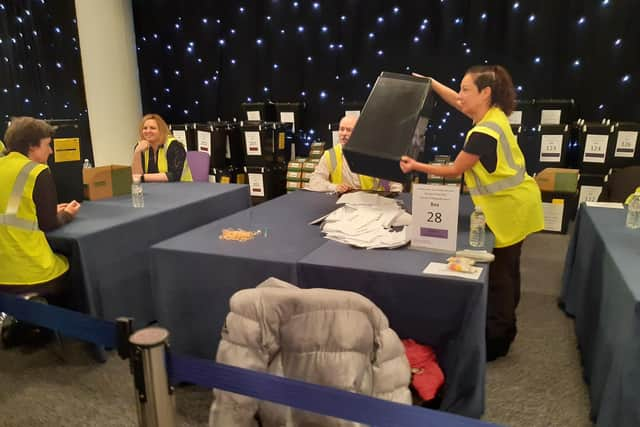Scottish council elections 2022: Could results signal a shift away from constitutional politics? – Ian Swanson
and live on Freeview channel 276
[Let us know what you think and join the conversation at the bottom of this article.]
The public in Edinburgh and across Scotland had firmly turned their backs on Boris Johnson's party. But underneath the dramatic wins, shock results and close calls, there may have been something else happening too, which could signal a major change in Scottish politics.
While the Tories lick their wounds, the Lib Dems and Greens are cock-a-hoop after making impressive gains, Labour is celebrating after overtaking the Tories to regain second place, and the SNP is delighted to have been returned once again as the biggest party. But is this just Conservative councillors paying the price for people’s disgust with the Prime Minister and his Partygate antics or is there more to it?


Advertisement
Hide AdAdvertisement
Hide AdAt every election since the 2014 independence referendum, people’s views for or against independence have been the main factor in deciding which party to vote for. The constitutional issue has been the key dividing line, the all-enveloping cloak which covered up all other concerns. And the Tories and SNP have made the most it, urging voters to use their vote to “stop independence” or “send a message to the UK Government”.
But Edinburgh University’s Professor Ailsa Henderson has detected a change in last week’s elections, a loosening of the link between the independence issue and the party people chose to back. Not only did the Tories lose lots of their votes to the Lib Dems, but many SNP supporters “parked” their votes with the Greens, she noted.
"There's clearly an element of constitutional fatigue at play here," she said in a radio interview. “The parties at the constitutional poles – those strongest in favour of Yes and No – aren’t able to count on constitutional issues delivering them voters as has been the case since the independence referendum.”
It’s not that independence has evaporated as an issue; it is still an important factor in how people cast their vote, but nothing like as important as it was previously, says Professor Henderson. "We should view these as the first elections that don't take place in the shadow of the 2014 referendum.”
Advertisement
Hide AdAdvertisement
Hide AdIf the 2022 local elections do mark such a turning point, it could herald significant changes in Scottish politics. There is already widespread scepticism about the SNP’s pledge of another referendum by the end of next year, but “constitutional fatigue” must be a worrying diagnosis for the Nationalists and their allies if they do plan to ago ahead with a fresh vote.
The Tories in Scotland have thrived on the constitutional debate, which has allowed them to paint themselves as the strongest opposition to the SNP, so if that starts to fade as the focus of political attention, their fortunes may well suffer accordingly.
The Lib Dems and the Greens, who have each have their own clear position on the constitution but are also interested in other issues, may benefit again as they did last week. And a shift away from all-consuming constitutional politics would be good news, perhaps most of all, for Labour, whose attempts at revival have been repeatedly stymied by the voters’ refusal to move beyond the independence question.
Anas Sarwar and his colleagues may have more to celebrate from Friday’s count than he realises.
Comment Guidelines
National World encourages reader discussion on our stories. User feedback, insights and back-and-forth exchanges add a rich layer of context to reporting. Please review our Community Guidelines before commenting.